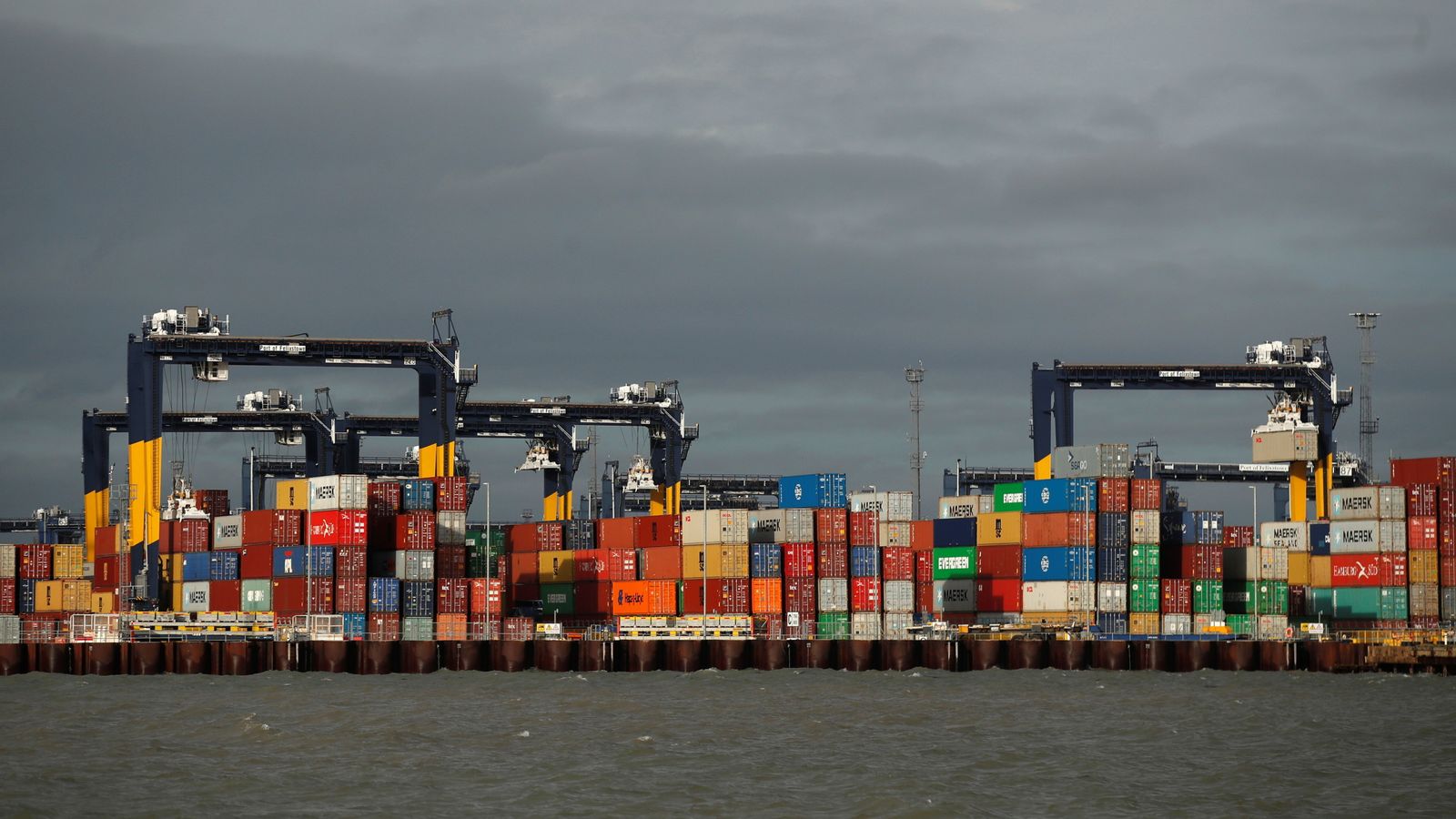Stockpiling has resulted in supply chain delays for 45% of manufacturing firms, according to a closely-watched survey of activity.
The IHS Markit/CIPS flash composite Purchasing Managers’ Index for the services and manufacturing sectors suggested a return to growth early this month after coronavirus lockdowns dragged on the economy in November.
But the report said manufacturing’s driving influence in the performance was determined by rising raw materials costs and lengthening delivery times as a result of growing congestion at UK ports.
“Shortages of critical inputs, alongside pressure on capacity following forward-purchasing by clients ahead of Brexit, contributed to the sharpest rise in backlogs of work across the manufacturing sector since May 2010,” IHS Markit said.
The survey showed that while almost half of respondents suffered supply delays, just 2% reported an acceleration in their chains.
Goods transported between Britain and the EU face new customs checks from 1 January when the transition period ends and possible tariffs and quota complications too unless a free trade agreement is concluded at talks which are continuing in Brussels.
The port disruption – first reported at Felixstowe in October – was originally blamed on large stocks of COVID PPE bought in by the government coinciding with the annual pre-Christmas surge in imports.
However, there has been rising evidence this month of Brexit uncertainty exacerbating the problem, with a growing number of ports affected.
Stena, the ferry operator, told Sky News earlier this month it had benefited from an uptick in stockpiling shipments across its UK routes.
Supermarkets have hoarded long-life products as a precaution.
The British Retail Consortium has reported a 25% week-on-week rise in shipping costs – adding to worries that Brexit-related charges could get passed on to consumers next year.
Hornby, the model railway maker, announced via its Twitter account on Tuesday that it had suspended all non-UK orders until next year blaming Brexit uncertainty.
UK business groups have expressed frustration this week about a lack of clarity on the road ahead but welcomed the fact that Brexit negotiations are continuing in the face of the horrific year of disruption caused by COVID-19.
Chris Williamson, chief business economist at IHS Markit, said of the survey’s findings: “Consumer-facing services, notably hotels, restaurants and tourism, reported further marked declines in output, largely offsetting renewed growth in business services, transportation and manufacturing.
“The manufacturing and transport sector improvements were linked to reviving global trade and a temporary boost from
Brexit-related stockpiling, which reportedly buoyed order books and exports during the month.”


